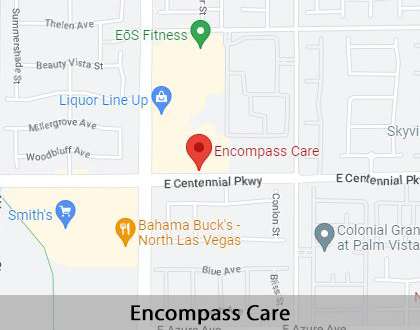Employee Diagnostic Testing North Las Vegas, NV
Without employee diagnostic testing, employers run the risk of not knowing the limits of their employees, especially when physical exertion is involved with their duties. Employee diagnostic testing allows employers to increase trust with their employees, provide the appropriate accommodations for employees, and avoid any unnecessary injuries that result while an employee is on the job.
With various forms of employee diagnostic testing, it is crucial for employers to provide this option to employees for their overall health and business stability. Call us at (702) 514-4295 to schedule an appointment with us in North Las Vegas today and learn more about employee diagnostic testing.

Employee Diagnostic Testing: Pulmonary, Cardiac, Audiometry and Vision
Employers need to fully understand their employees' capabilities as they run the risk of overworking employees if not informed of any conditions they may have. Pulmonary, cardiac, audiometry, and vision testing allow employers to gain insight into if an employee is up for a particular task and what they need to complete their job safely.
If you are an employer that relies on employees to perform physical labor or good vision and a good ability to hear, come into our urgent care facility to have employees tested. If you are an employer who feels employee diagnostic testing could be beneficial, consider discussing the opportunity with your employer to see if it is possible.
Facts from The National Heart, Lung and Blood Institute
- An individual’s lung function test results are interpreted by comparing them to the results predicted for a person of the same sex, age, height and race.
- Employers are required to protect workers from overexposure to hazardous substances.
- Stress testing provides information about how your heart works during physical stress.
- The main job of your lungs is to bring oxygen into your body and get rid of carbon dioxide in your blood.
- An EKG shows how fast your heart is beating and the heart’s rhythm.
- An audiometry test is performed to determine how well you can hear.
- An audiometry exam requires no special preparation.
- There are several different types of visual acuity tests, most of which are very simple.
Questions to Ask Your Urgent Care Provider
- Why is employee diagnostic testing necessary?
- What are you looking for when doing pulmonary testing?
- How extensive are the pulmonary tests I will have to go through?
- What will cardiac tell you about my ability to work at my company?
- Is it safe to go through cardiac testing if I have a heart problem?
- What testing procedures will be used for audiometry testing?
- What are good results for audiometry testing? What are bad results?
- Is vision testing as simple as reading letters off of a piece of paper?
- What does my vision score mean? Is there anything I can do to improve my vision?
- What is the purpose of employee diagnostic testing?
- Is there anything I need to do to ensure my employee receives the results?
- How are my testing results measured? Are they on par with the majority of other participants?
“Pulmonary, cardiac, audiometry, and vision testing allow employers to gain insight into if an employee is up for a particular task and what they need to complete their job safely.”
What Is Employee Diagnostic Testing?
Employee diagnostic testing describes a series of tests that determine if a company's employees are up for a job and what precautionary measures are necessary for them to do their job in a safe, efficient manner. While it may seem on the surface as it is only there to benefit the employer, it helps the employees stay safe and prepare for any health concerns that may come up while at work.
Most large, well-managed companies offer employee diagnostic testing, especially if their line of work requires employees to endure physical exertion and stress throughout the typical workday. It is helpful for the employers to be well informed of any health concerns that may exist, and it helps the employee receive the proper treatment needed for their health problem(s) not to become an issue.
Employee diagnostic testing helps both employers and employees in multiple ways. Benefits include:
- Improved productivity
- Improved morale and loyalty among employees
- Reduced turnover of staff
- Reduced sick or absence levels
For employees, participating in employee diagnostic testing helps give them access to useful health information, improve performance/efficiency at work, and reduce health risks while on the job.
There are different types of employee diagnostic testing procedures. Most commonly, employee diagnostic testing is utilized by businesses to learn more about their ability to function while on the job. Subsequently, the most common forms of employee diagnostic testing include pulmonary testing, cardiac testing, and audio and vision tests. With that said, there is a fairly wide range of possible employee diagnostic tests, and the exact tests differ for each business.
“Employee diagnostic testing describes a series of tests that determine if a company’s employees are up for a job and what precautionary measures are necessary for them to do their job in a safe, efficient manner.”
Pulmonary Testing
A pulmonary test, or a pulmonary function test, diagnoses how well the lungs take oxygen from the environment and integrate it into the circulatory system. By doing so, it is able to detect any signs of lung cancer, asthma or other breathing problems that may exist. While there are several different types of pulmonary tests available, the most popular form of pulmonary testing is what is known as a spirometry.
The way a spirometry works is simple. The first thing you will do is breathe in as much air as you possibly can through your mouth. After this, you quickly blow as much air back out as possible into a tube connected to a machine, which is known as a spirometer. The test measures two different things, which is how much air you can breathe out after inhaling deeply and the amount of air you can exhale in one second. In essence, the two measurables tell the physician whether or not you have difficulty breathing and how severe the breathing problem is.
In most cases, a pulmonary test may be ordered for an employee to see whether or not they are up for a specific job, usually requiring some physical labor. In the event the test comes back abnormal, meaning the individual does have a breathing problem, oftentimes accommodations can then be made to ensure the individual is able to do the job safely.
The test is typically good for both the employer and the employee. It assures employers that the individual can safely do the job while also giving them useful information. This way, the employee can seek treatment for any breathing conditions they may have, such as asthma or an untreated illness like bronchitis.
Check out what others are saying about our services on Yelp: Employee Diagnostic Testing in North Las Vegas, NV
Cardiac Testing
Cardiac diagnostic tests are among the most utilized forms of testing, especially when the job requires employees to exert physical energy. A cardiac test typically can reveal abnormalities in the heart's ability to function, ranging from a minor issue to a more serious concern such as signs of heart disease. We utilize three main types of cardiac tests at our urgent care facility, including an electrocardiogram(EKG), stress test, and echocardiogram.
Electrocardiogram
An electrocardiogram, known as an EKG or an ECG, is a test that records the electrical signals in the heart. An EKG is a non-invasive procedure and does not take long to complete. An EKG works by recording the rhythm and strength of the heartbeat. The process of having an EKG performed involves hooking up a series of wires and electrical impulses to your chest and monitoring the heart's activity, gathering information from 12 different sections of the heart.
Stress Test
A stress test can help determine the ability of an employee to endure physical stress. The way the test works is by having the individual walk on a treadmill or pedal on a stationary bike, while the physician monitors the activity of the heart during the exercise. In most instances, during a stress test for employee diagnostic testing, the physician will also manage breathing patterns and blood pressure during the exercise.
Echocardiogram
An echocardiogram - commonly known as an echo - is the least invasive cardiac test, and it is an ultrasound of your heart, although in a different manner than an actual ultrasound. An echo utilizes sound waves to project an image of the heart's activity and determine any irregularities with the heart's activity.
“Cardiac diagnostic tests are among the most utilized forms of testing, especially when the job requires employees to exert physical energy.”
Questions Answered on This Page
Q. What does employee diagnostic testing involve?
Q. What can employee diagnostic testing do for me?
Q. How does pulmonary testing work?
People Also Ask
Q. How do I know if my back pain is severe?
Audiometry and Vision Testing
An audiometry test is a non-invasive hearing test that measures an individual's ability to hear different levels of sounds. In most instances, an audiometry test can determine whether or not there have been any changes to someone's ability to hear following surgery or a traumatic event. Audiometry tests can determine whether or not hearing aids or surgery is needed to improve one's hearing. For employee diagnostic testing, however, audiometry tests are used to determine whether or not an individual needs any assistance while on the job.
The test works by having the individual go into a soundproof room with headphones on. The person who is doing the testing will then play sounds into the headphones, and the patient will raise either their left or right hand when they hear a sound come into the headphones, depending on which ear they hear the sound from. The frequency of the sounds varies, and the physician will record the lowest frequencies noticed by the patient.
A vision test - also known as an eye exam - is a fairly basic procedure that most are familiar with. The test involves looking at a sheet filled with letters of different sizes from twenty feet away. The examiner will then ask the patient to read off a line of letters. They will then read off different lines either above or below the original line depending on whether or not they were successful the first time. The test is also done for both eyes individually, as well as a complete vision test with both eyes.
In many instances, we also check your pupils thoroughly as part of vision testing. Both audiometry and vision testing help employers understand the limitations of their employees, which in return gives them the ability to make necessary accommodations.
“An audiometry test is a non-invasive hearing test that measures an individual’s ability to hear different levels of sounds.”
Frequently Asked Questions
Q. What is the point in employee diagnostic testing? Who is it for?
A. Employee diagnostic testing benefits both the employer and the employee. The reason an employee diagnostic test is performed is to provide information to both employees and employers about any conditions that may affect the way a person can perform their job. It is not usually used to determine whether or not someone gets a job, rather determine what accommodations are necessary to ensure the company's employees are safe and are not at risk of suffering an injury or getting ill from the activity performed while on the job. Most notably, construction companies often require employee diagnostic testing.
Q. I received my employee diagnostic testing results, but I do not know what it means. How do I tell?
A. Be sure to discuss your results with us here at our urgent care facility, or schedule a meeting with your employer to go over the testing results. In most cases, we will go over the test results with you after they are conclusive, and we will notify you of any conditions or potential onset of a condition that we find. In the event you do not hear back about your test results for any reason, it likely means there is not anything wrong. However, be sure to consult with either a medical professional or your employer to be safe.
Q. It has been several weeks since my employee diagnostic testing, and I still do not have my results. What should I do?
A. The results for most employee diagnostic testing procedures are available the same day of the testing. It may take several days to come in, which means the employer will receive the test results. However, it should not take several weeks to arrive. In the event, you have not seen your test results in several weeks, be sure to consult with both the medical professional that performed the testing and your employer. If you have not heard back about your results, it likely means they are good results, although it is important to have an understanding of your results and ensure that everything is okay.
Q. If my results are not up to standard, will I be fired from my job?
A. We certainly hope not, and that is not the goal of employee diagnostic testing. A diagnostic test helps employers understand any risks employees have toward injury or illness and being properly accommodated based on those risks. In most cases, accommodations for conditions noticed during employee diagnostic testing are simple, such as carrying an inhaler while on the job, wearing contact lenses or glasses, or possibly receiving a hearing aid.
Q. Does employee diagnostic testing include drug testing?
A. Employee diagnostic testing can include drug testing, especially for pre-employment testing. However, drug testing is often separate from employee diagnostic testing to determine whether or not a new hire or fire should be made. The idea behind employee diagnostic testing is to test an employee's capability to perform a specific job duty. If the presence of a drug hinders the ability to do so, the employee may also order a drug test along with the various other forms of diagnostic testing that is common.
Q. How does an employee diagnostic test work? What does the process consist of?
A. Every employee diagnostic test is different, and the actual procedures done depend on what duties are completed by employees. The way each process works is laid out above. In most cases where pulmonary, cardiac, audiometry, and vision tests are required. Fortunately, all of the necessary tests are on the same visit, and it is not an invasive procedure unless a stress test is needed. To prepare for the testing, be sure to hydrate the night before, keep your stress level as low as possible(avoid exercise the night before), and make sure your eyes receive plenty of rest in the event a vision test is needed.
Start Feeling Better – Visit Us Today
By visiting us as soon as possible, our team can help get you the professional treatment you need. Instead of waiting around and allowing the symptoms to get worse, we can provide you with stronger medication and treatment options instead of ineffective store-bought products.
Definitions
Consult With Us
Employee diagnostic testing is essential to ensure you are fully capable of doing your job and find out what is needed. Employee diagnostic testing is a great way to fully understand employees' abilities and what accommodations are necessary to help them work more effectively and efficiently. At our urgent care facility, we have the staff and resources necessary to complete most employee diagnostic testing procedures, including pulmonary function tests, cardiac testing, audiometry testing, and vision testing.
In the event you want to learn more about employee diagnostic testing, consult with us. If necessary, you can walk in or call ahead to learn more. As an urgent care center, we do not require appointments.
Helpful Related Links
- American Journal of Medicine. American Journal of Medicine. 2023
- American Medical Association (AMA). American Medical Association (AMA). 2023
- American Medical Society For Sports Medicine (AMSSM). American Medical Society For Sports Medicine. 2023
- American Trauma Society. American Trauma Society. 2023
- John Hopkins Medicine Orthopaedic Surgery. John Hopkins Medicine Orthopaedic Surgery. 2023
- National Council on Aging. National Council on Aging. 2023
- Orthopaedic Surgery: Association of American Medical Colleges. Orthopaedic Surgery: Association of American Medical Colleges. 2023
- Radiological Society of North America. Radiological Society of North America. 2023
About our business, license, and website security
- Encompass Care was established in 1997.
- We accept the following payment methods: American Express, Cash, Discover, MasterCard, and Visa
- We serve patients from the following counties: Clark County
- We serve patients from the following cities: Las Vegas, North Las Vegas, Henderson, Paradise, Spring Valley, Boulder City, and Winchester
- Norton Safe Web. View Details
- Trend Micro Site Safety Center. View Details
Back to top of Employee Diagnostic Testing










